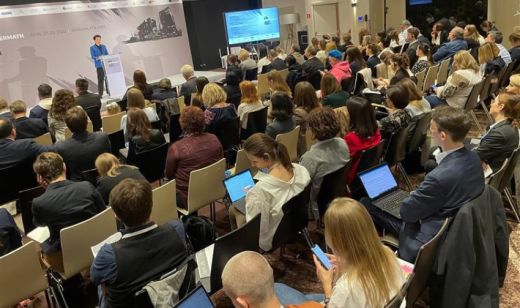
International Conference «War Aftermath: Reconsidering The Future Of Civil Society» was held in Warsaw, Poland, and attended by 162 participants. At the same time, thematic events took place offline in Lviv and online on the Conference platform. The result of our 3-day event is 106 speakers, 28 sessions on critical issues for the country, 36 hours of live broadcasts, and 5,100 views.
ISAR Ednannia gathered the key points and conclusions that formed the basis of the Roadmap for Civil Society elaborated during the Conference. We are open to suggestions and ideas, creating new forums for discussion. If we have a common goal to develop priority steps for civil society to rebuild the country, contact us via our e-mail: office@ednannia.ua.
Key messages and conclusions for civil society organizations
To become influential players in the international community. Our voice has to be powerful and influential and this can be achieved via open and clear communication policy. We have to be represented on international non-governmental platforms with a comprehensible action plan. “You will become more powerful if you create the trans-national network of support today, this will be an incredible resource for you”, - Ambassador Henrik Villadsen, OSCE Project Coordinator in Ukraine
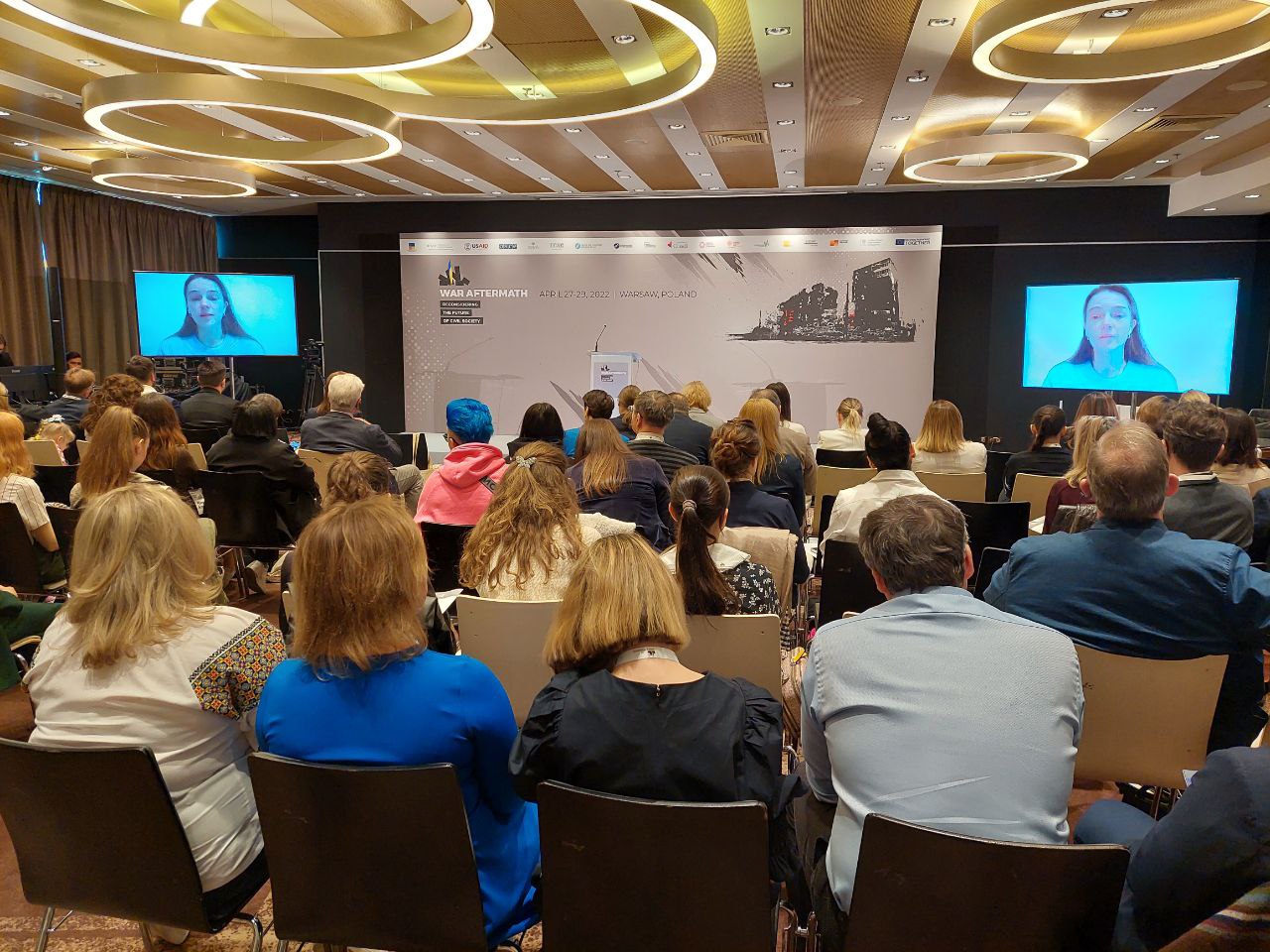
To keep the level of activity, participation, and engagement of citizens. There’s a need to review NGO’s informational policy, to stress its openness to new people and ideas, and also to be proactive in highlighting activities, being transparent, and accountable to the society.
To counteract Russian totalitarian narratives and practices. To promote Ukrainian cultural products in cooperation with state institutions, international partners, and philanthropists.
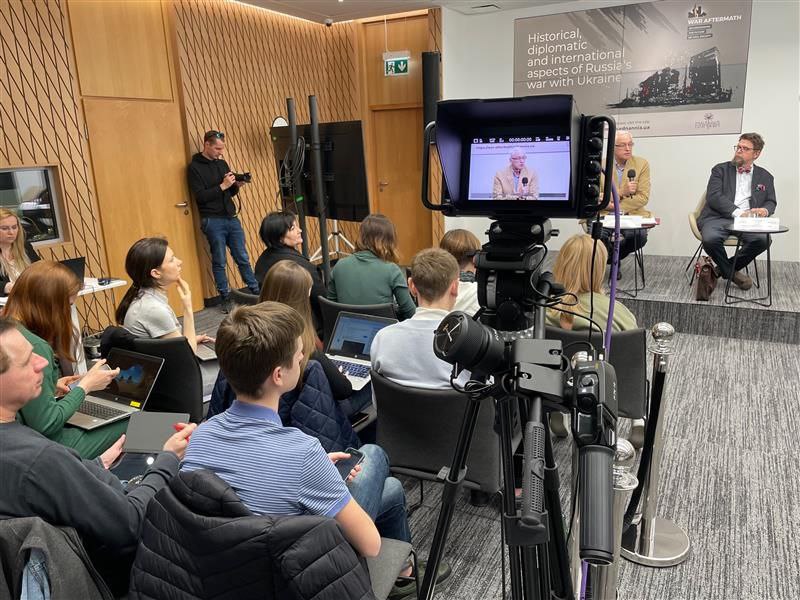
To engage into the development and implementation of the strategy of reconstruction of Ukraine. Civil society has to develop its offer on reconstruction, accepted by the best futurologists, scientists, creators of urban spaces, architects, and Ukrainian and Western businessmen. Katarina Mathernova, Deputy Director-General of the Directorate General for Neighbourhood & Enlargement Negotiations, Acting Director of Support Group for Ukraine (NEAR.SGUA): “Interaction between civil society, authorities and international organizations was always the strength of Ukraine. It was always fundamental to have a strong representation of civic activists in interactions with international organizations, that is why there is a high hope that the process of reconstruction of the country will also be conducted in close cooperation.
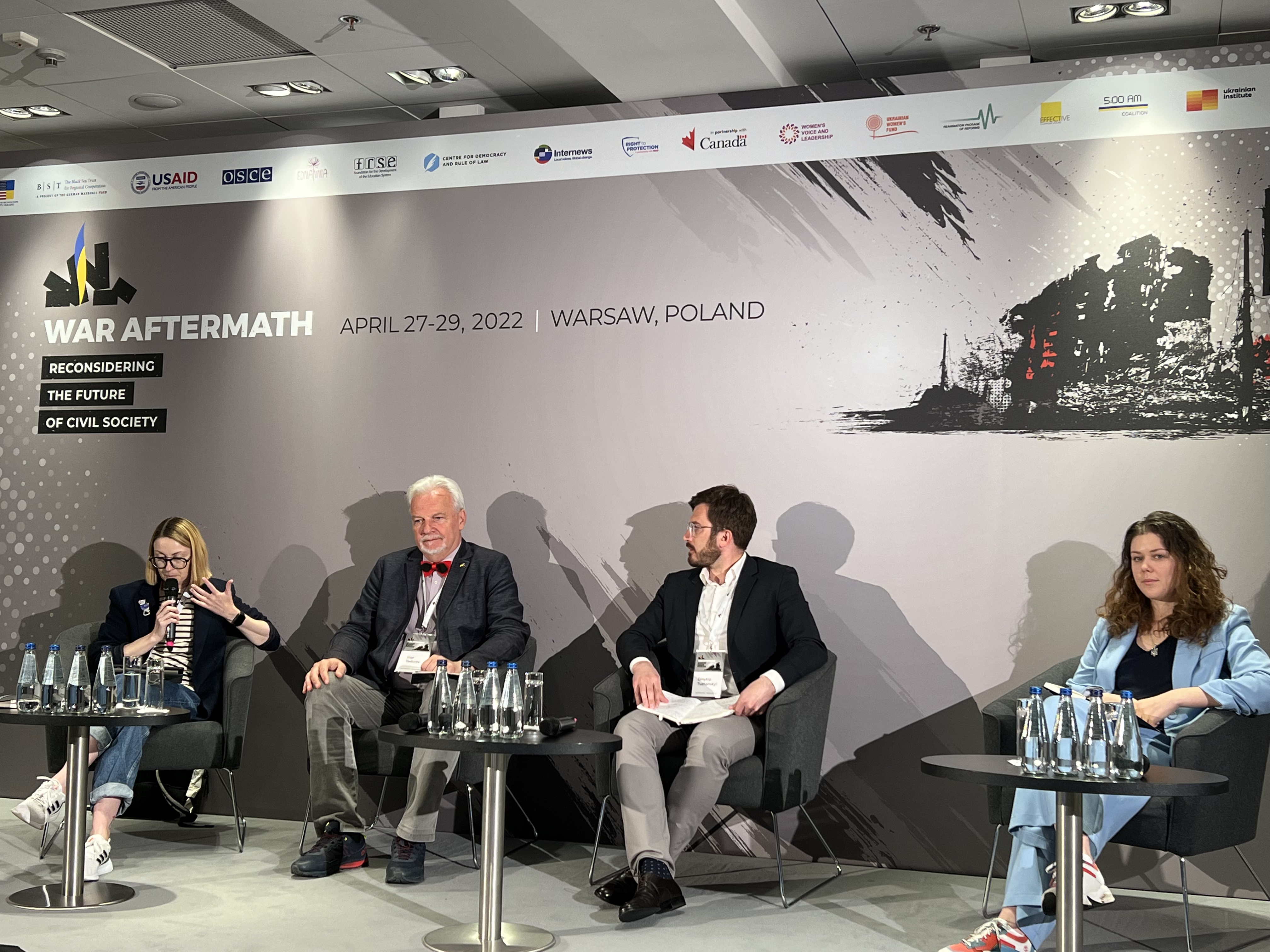
To operate at the local level.
"One of the important principles of Europe is 'let everything be decided on the local level, in the communities,' - Michał Baranowski, director of GMF's Warsaw office.
To ensure the transformation of law and order to restore justice.
Ukraine faces the challenge of obtaining justice for its citizens who were victims of war crimes, ensuring the inevitability of punishment and fair compensation. Civil society must provide restoring of justice. "Ukraine's civil society must be at the center of justice," - Matthew Cannock, Amnesty's Center for International Justice.
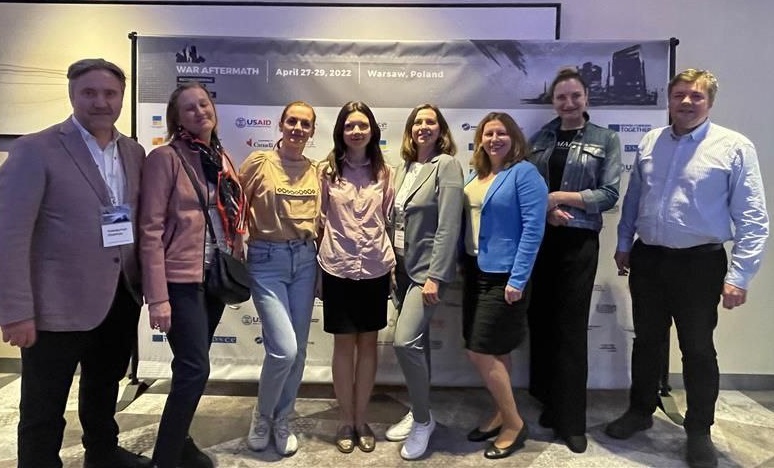
To protect the rights of Ukrainians. Civil society should intensify dialogue of the Governments of the hosting countries with the Ukrainian Government to develop policies for shelter recipients jointly.
To strengthen the capacity of civil society. Civil society capacity development is key to the constant and complex impact on the social processes, democratic reforms, and state policies in Ukraine. "Ukrainians must determine what kind of civil society can support Ukraine in the post-war world," - Alan Purcell, Deputy Chief of Mission at the U.S. Embassy in Ukraine.
The Conference is organized by the Initiative Center to Support Social Action "Ednannia" (Kyiv, Ukraine) and the Foundation for the Development of the Education System (FRSE, Warsaw, Poland) with the financial support of the US Embassy in Ukraine and The Black Sea Trust for Regional Cooperation, A Project of the German Marshall Fund. Conference co-partners are USAID Ukraine Civil Society Sectoral Support Activity, European Union within the project "EU Emergency Support 4 Civil Society" and the OSCE Project Co-ordinator in Ukraine.
